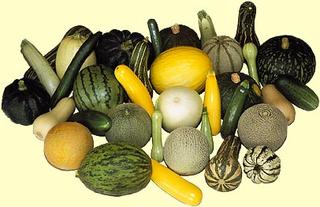Agog
a·gog (ə-gŏg')
adj.
Full of keen anticipation or excitement; eager.
[Middle English agogge, from Old French en gogue, in merriment : en, in (from Latin in. See in-2) + gogue, merriment.]
a·gog (ə-gŏg')
adj.
Full of keen anticipation or excitement; eager.
[Middle English agogge, from Old French en gogue, in merriment : en, in (from Latin in. See in-2) + gogue, merriment.]
ger·und (jĕr'ənd)
n.
1. In Latin, a noun derived from a verb and having all case forms except the nominative.
2. In other languages, a verbal noun analogous to the Latin gerund, such as the English form ending in -ing when used as a noun, as in singing in We admired the choir's singing.
[Late Latin gerundium, from alteration (modeled on participium, participle), of Latin gerundum variant of gerendum, neuter gerundive of gerere, to carry on.]
mel·lif·lu·ous (mə-lĭf'lōō-əs)
adj.
1. Flowing with sweetness or honey.
2. Smooth and sweet: “polite and cordial, with a mellifluous, well-educated voice” (H.W. Crocker III).
[Middle English, from Late Latin mellifluus : Latin mel, mell-, honey; see melit- in Indo-European Roots + Latin -fluus, flowing; see bhleu- in Indo-European Roots.]
man·qué (mäN-kā')
adj.
Unfulfilled or frustrated in the realization of one's ambitions or capabilities: an artist manqué; a writer manqué.
[French, from past participle of manquer, to fail, from Old French, from Old Italian mancare, from manco, lacking, from Latin mancus, maimed, infirm.]

cu·cur·bit (kyōō-kûr'bĭt)
n.
1. Any of various mostly climbing or trailing plants of the family Cucurbitaceae, which includes the squash, pumpkin, cucumber, gourd, watermelon, and cantaloupe.
2. A gourd-shaped flask forming the body of an alembic, formerly used in distillation.
[Middle English cucurbite, from Old French, from Latin cucurbita, gourd.]
per·i·pa·tet·ic (pĕr'ə-pə-tĕt´ĭk)
adj.
1. Walking about or from place to place; traveling on foot.
2. Peripatetic Of or relating to the philosophy or teaching methods of Aristotle, who conducted discussions while walking about in the Lyceum of ancient Athens.
n.
1. One who walks from place to place; an itinerant.
2. Peripatetic A follower of the philosophy of Aristotle; an Aristotelian.
[Middle English peripatetik, from Latin peripatēticus, from Greek peripatētikos, from peripatein, to walk about, or from peripatos, covered walk (where Aristotle allegedly lectured) : peri-, peri- + patein, to walk; see pent- in Indo-European Roots.]
grok (grŏk)
tr.v. Slang grok·ked, grok·king, groks
To understand profoundly through intuition or empathy.
[Coined by Robert A. Heinlein in his Stranger in a Strange Land.]
/grok/, /grohk/ (From the novel "Stranger in a Strange Land",
by Robert A. Heinlein, where it is a Martian word meaning
literally "to drink" and metaphorically "to be one with")
1. To understand, usually in a global sense. Connotes
intimate and exhaustive knowledge.
Contrast zen, which is similar supernal understanding
experienced as a single brief flash. See also glark.
2. Used of programs, may connote merely sufficient
understanding. "Almost all C compilers grok the "void" type
these days."